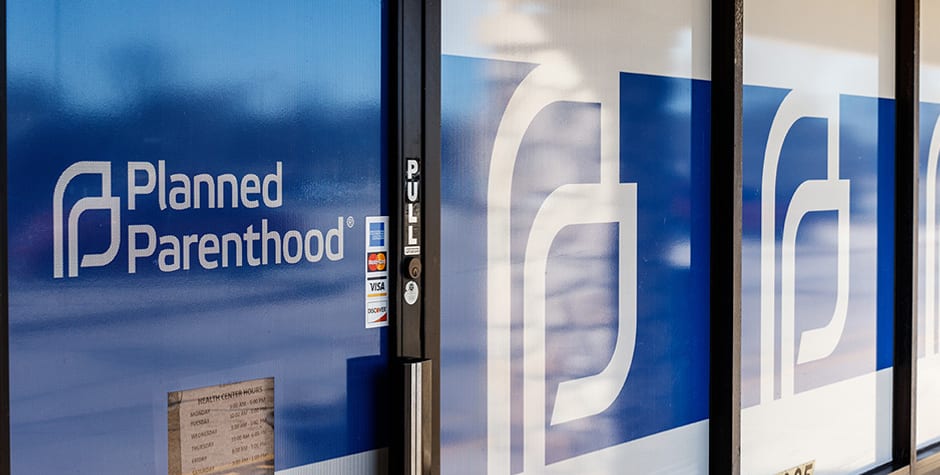ACLJ Files Amicus Brief Urging Supreme Court To Hear Case Involving South Carolina's Decision To Defund Planned Parenthood, Disqualifying It as a Medicaid Service Provider
Listen tothis article
The ACLJ just filed a friend-of-the-court brief with the Supreme Court in Kerr v. Edwards. This is an important case that could have a dramatic impact on the ability of the states to stop the flow of taxpayer dollars to the nation’s largest abortion provider. As we explained earlier, this case arose after South Carolina’s governor, Henry McMaster, issued an Executive order directing the South Carolina Department of Health and Human Services (DHHS) to deem abortion clinics unqualified to receive Medicaid funding. Planned Parenthood and an individual plaintiff immediately sued in federal court, challenging the state’s decision.
This is the third time the case has come before the U.S. Supreme Court. Each time the ACLJ filed friend-of-the-court briefs in support of South Carolina. The Court denied review the first time after the district court issued a preliminary injunction against the executive order, and the Fourth Circuit Court of Appeals affirmed. The preliminary posture of the case was likely the reason the Court denied review.
The case went back to the district court for a full hearing on the merits. This time the district court permanently enjoined the executive order. The Fourth Circuit again affirmed so the case was finally resolved in the lower courts. Or so it was thought.
When the case went up the second time, another case involving a similar statutory issue under a different federal law was already pending before the Supreme Court. As we told you at the time, the Supreme Court granted review in Health and Hospital Corp. of Marion County v. Talevski, which involved the interpretation of the Federal Nursing Home Reform Act (“FNHRA”). Kerr involves the interpretation of a particular provision of the Medicaid Act.
The primary issue in both Kerr and Talevski is whether private beneficiaries of the programs can sue the states when the state administers the program in a manner that a beneficiary dislikes. The Court heard oral argument in Talevski and issued a decision last term, which provided some general guidance but did not address the specific issues in Kerr. Shortly after deciding Talevski, the Court issued what is called a GVR in Kerr. It Granted review in Kerr, Vacated the Fourth Circuit’s judgment, and Remanded the case back to the Fourth Circuit for a “do-over.” In layman’s terms, the Court was sending this message: “Reconsider your previous judgment in the light of our reasoning in Talevski.” Notwithstanding some hints in the Court’s Talevski opinion that the Fourth Circuit should reach a different conclusion in Kerr, the lower court stuck to its guns. It again affirmed the permanent injunction.
So South Carolina has once again asked the Supreme Court to hear the case, and once again has asked for the ACLJ’s support.
Our brief argues that after the Court’s decision in Dobbs v. Jackson Women’s Health Organization, abortion and state taxpayer subsidization of abortion clinics are matters of state decision-making autonomy. The Medicaid statute must, therefore, be interpreted in a manner that respects state sovereignty over abortion policy. As we explained further:
States whose citizenry views abortion as the taking of a human life should not be commandeered by a spending statute condition into funneling taxpayer funds to the very entities that terminate human life, unless those states have “voluntarily and knowingly accepted the condition.” Cummings v. Premier Rehab Keller, P.L.L.C., 142 S. Ct. 1562, 1566 (2022).
Congress did not give clear notice in the [Medicaid Act provision] that states would be subject to private rights of action under § 1983. There is no “more direct affront to state sovereignty,” Murphy, 138 S. Ct. at 1478, than reading § 1396a(a)(23) as Congressional authorization for states to be 1) hauled into federal court to have potentially hundreds of their Medicaid service provider disqualification decisions second-guessed; and 2) coerced to funnel taxpayer money to entities that violate the state’s sincere and deeply held views on the sanctity of human life.
The arguments supporting the grant of review have grown stronger since the first time the case went up. Although the Supreme Court will not decide whether to grant review in Kerr until the fall term, we are hopeful that the third time is the charm. If the Court grants review, we will, with your continued support, continue the fight against taxpayer subsidization of Planned Parenthood.
